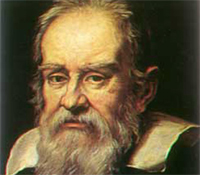Galileo Between Science, Science Studies and Science Fiction |
||
|
||
|
DESCRIPTION/ABSTRACT: SPEAKER BIO:
Sheldon Brown is the Director of the Center for Research in Computing and the Arts (CRCA) at the University of California at San Diego (UCSD) where he is a Professor of Visual Arts. He is the Site Director of the UCSD branch of the NSF sponsored Center for Hybrid Multicore Productivity Research leading its focus on next generation digital media research. He founded the New Media Arts area for the California Institute of Telecommunications and Information Technologies (Calit2), and is currently the Calit2 Artist-in-Residence. His artwork examines the relationships between mediated and physical experiences and explores the interconnections between media such as: computer gaming, virtual worlds, cinema, installation, public art and sculpture. He has shown his work at such places as The Museum of Contemporary Art in Shanghai, The Exploratorium in San Francisco, Ars Electronica in Linz Austria, The Kitchen in NYC, Zacheta Gallery in Warsaw, Centro Nacional in Mexico City, The National Academy of Science in Washington DC and others. He has been commissioned for public artworks in Seattle, San Francisco, San Diego and Mexico City, and has received grants from AT&T New Experiments in Art and Technology, the NEA, the NSF, the Rockefeller Foundation, IBM, Intel, Sun, Vicon and others. http://sheldon-brown.net/
UCSD graduate Kim Stanley Robinson is a well-known science fiction writer. Author of the Mars trilogy (Red Mars, Green Mars, Blue Mars), his novels and short stories have been translated into twenty-three languages, and have been given Hugo and Nebula awards, as well as awards in England, France, Spain, and Japan. In 1995 he went to Antarctica as part of the U.S. National Science Foundation's Antarctic Artists and Writers' Program, and in 2008 he joined the Sequoia Parks Foundation's Artists In the Back Country program. Last year Time magazine named him one of their 'Heroes of the Environment.' He serves on the advisory boards of the Clarion Writer's Workshop, the Planetary Society, the Mars Association, and UCSD's Sixth College. This September he will be the guest of honor at the World Science Fiction Convention, in Melbourne, Australia.
Professor Brian Keating (PhD, Brown University 2000) is an astrophysicist with UCSD?s Department of Physics and the Center for Astrophysics and Space Sciences. He guides a research team of undergraduates, graduate students, and Postdocs to develop sensitive instrumentation to study the early universe in the radio-, microwave- and infrared-wavelength regimes of the electromagnetic spectrum. He holds a U.S. Patent for a novel microwave polarization modulator. Keating completed postdoctoral research at Stanford University and was an NSF Postdoctoral Fellow at Caltech before coming to UCSD in 2004. In 2007 he received the Presidential Early Career Award for Scientists and Engineers at the White House from President George W. Bush for his work on a telescope he designed and fielded with his students and colleagues at the US Amundsen-Scott South Pole Research Station. MORE INFORMATION: |

